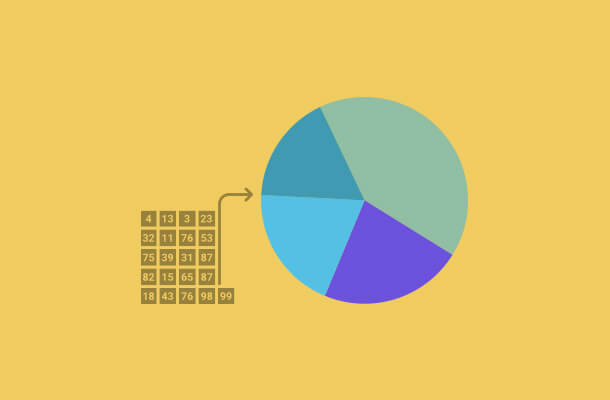
Defining data visualization isn’t as easy as it seems. Some view it as a communication tool, while others view it as a process, outcome, relief, form of insight, culture, voice of the information age, or the perfect blend between science and art.
We’ve collected quotes from thought leaders and influencers in the data visualization community – dating back to 1801 – to try and get to the bottom of the debate.
What is Data Visualization?
1) “If you’re navigating a dense information jungle, coming across a beautiful graphic or a lovely data visualization, it’s a relief. It’s like coming across a clearing in the jungle.” – David McCandless, TED Talk July ‘The beauty of data visualization,’ 2010
2) “[There are] five features that I believe define most great data visualizations and infographics: they are often truthful, functional, beautiful, insightful and, as a consequence, enlightening.” – Alberto Cairo, Interview with Visualoop, 2016
3) “Effective analytic designs entail turning thinking principles into seeing principles.” –Edward Tufte, An Interview with Edward R. Tufte, 2004
4) “Data visualization is a process and an outcome that aims to communicate abstract, usually quantitative concepts, in an intuitively insightful way. In essence, data visualizations are visual metaphors that make references to the physical world that we naturally understand through comparisons such as “taller”, “faster” or “warmer”. Data visualization turns data into information by relying on our intuitive understanding of visual metaphors.” – Mikko Jarvenpaa, Infogram CEO, 2016
5) “The goal is to turn data into information, and information into insight.” – Carly Fiorina,“Information: the currency of the digital age,” 2004
6) “If we look at visualization as communication, then things like chart types, this is our visual language. This is the syntax, the verbs that we’ve got to use now to tell stories.” –Andy Kirk, Interview with Nature Jobs, 2014
7) “The point of data visualization isn’t always to make the single most effective presentation of data. It’s to communicate with people and engage them, and this might require creatively pushing the rules a little in order to generate emotion and drama.” – Andy Cotgreave, Interview with Computerworld, 2016
8) “Good data visualizations create an “aha” of understanding, turning it into information that can be used to reveal insights & drive action.” – Cole Nussbaumer, Infogram exclusive, 2016
9) “The greatest value of a picture is when it forces us to notice what we never expected to see.” – John Tukey, Exploratory Data Analysis, 1977
10) “When you do data visualization, the first thing is to understand the content. That’s so important. People tend to try to visualize something without understanding what it truly means. You have to be able to distill a lot of complex information, whether it’s quantitative or qualitative, and distill it into something concise so people can digest it. That’s the essence of data visualization: Distilling a massive amount of data into a digestible amount of data, and then presenting it visually.” – Dona Wong, Interview with AMA, 2016
11) “There’s a strand of the data viz world that argues that everything could be a bar chart. That’s possibly true but also possibly a world without joy. Nicely designed posters with a few numbers on them aren’t really data viz.” – Amanda Cox, Interview with Harvard Business Review, 2013
12) “Dataviz is about telling a story in the clearest way possible. I’m an amateur, so I have incredible respect for great designers. I feel like the best work takes the data, edits it down to what is needed and then helps us understand a story better. Lengthy “Infographics” by marketing teams ARE NOT helpful dataviz.” – Simon Rogers, Infogram exclusive, 2016
13) “[To give insight to statistical information] it occurred to me, that making an appeal to the eye when proportion and magnitude are concerned, is the best and readiest method of conveying a distinct idea.” William Playfair, The statistical breviary; shewing the resources of every state and kingdom in Europe, 1801
14) “The ability to find what’s useful in the mounds of data that surround us, to make sense of it, and to then present it clearly and accurately, forms the foundation on which the information age will finally fulfill its promise. Unless we give information a clear voice, its important stories will remain unheard, and ignorance will prevail.” – Stephen Few, Second Edition ‘Show Me the Numbers,’ 2012
15) “Storytelling has an incredibly valuable role in our lives. It basically makes us who we are and it makes life interesting, it develops culture… I think as we move into the future, which will clearly be dominated by technology, it’s important that we bring culture along with us.” – Aaron Koblin, Future of Storytelling, 2012
[hr]
This post was originally published on Infogram.
